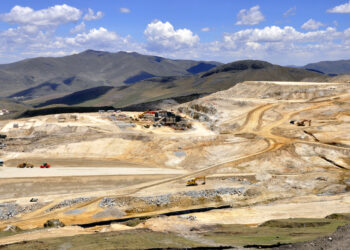Anglo American (LON: AAL) could become the next top miner to walk away from thermal coal, as the commodity was barely mentioned Tuesday in a series of presentations to investors as one of the company’s main pillars of growth from 2020 and beyond.
The diversified miner, which has consistently been offloading coal operations since 2014, has lowered its 2021 thermal coal target to 26 million tonnes from a previous goal of as much as 30 million tonnes.
According RBC Capital Markets, Anglo should decide next year whether the controversial commodity fits into its future portfolio.
The company is on a trajectory away from thermal coal and may be better off selling those assets, RBC analyst Tyler Broda said in a note to investors. “With rising ESG concerns, we would expect Anglo will divest this higher-quality and exports-focused business,” he wrote.
The miner has lowered its 2021 thermal coal target to 26 million tonnes from a previous goal of as much as 30 million tonnes.
Metallurgical or coking coal,
however, does appear to be one of Anglo’s key commodities moving forward. Despite
a slight production drop from 23-25 million tonnes to 22-24 million tonnes expected
next year, Anglo’s metallurgical coal guidance for 2022 increases to an
estimated 26-28 million tonnes.
“We believe our iron ore, met coal and nickel businesses are well set to meet future demand trends,” the company’s Bulk Commodities chief, Seamus French, said in a presentation.
Top mining companies have been reducing or eliminating their exposure to coal on environmental grounds. Rio Tinto (ASX, LON: RIO), the world’s second largest miner, fully exited the coal sector in March 2018, with the sale of its Kestrel coal mine in Australia to private equity manager EMR Capital and Indonesia’s Adaro Energy for $2.25 billion.
Rival BHP (ASX, NYSE:BHP) took a
step in the same direction in July, revealing it had been mulling options
to divest its thermal coal business, which includes assets in
Australia and Colombia.
Shareholders at world’s largest mining company, however, don’t seem too keen to ditch coal. Last week, Australian investors voted against a plan that would have seen BHP leave lobby groups that promote policies at odds with the goals of the Paris climate accord. The agreement, signed in 2016 by almost 200 nations, aims at reducing emissions of gases that contribute to global warming.
Australia’s South32 (ASX, LON, JSE:S32), which spun out of BHP in 2015, is another company to have recently kissed the fossil fuel goodbye. Last week, it sold its thermal coal operations to Seriti Resources and two trusts, for 100 million rand ($6.78 million) upfront.














